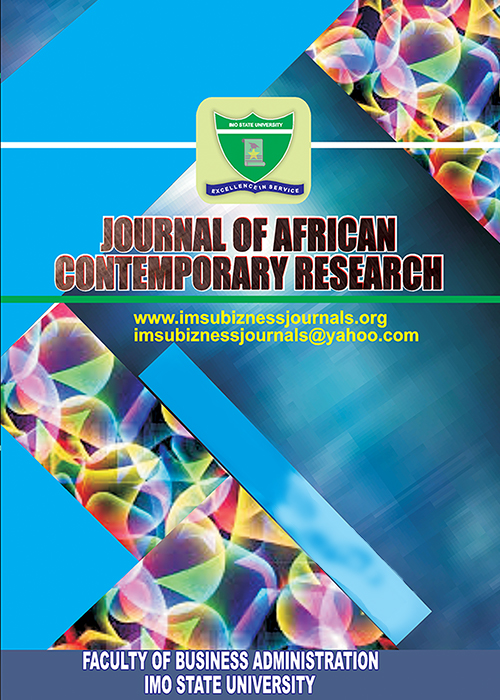2025
Vol. 16, No. 1
In an increasingly unstable global environment, preparing organizations for the future is a crucial strategic necessity, especially in Nigeria, where specific socio-cultural characteristics create distinct problems and possibilities. This quantitative research examines the connections among cultural necessities, restructuring activities, job-related perspectives, and organizational preparedness for the future within the Nigerian setting. Information was gathered from 110 workers and supervisors through standardized surveys and examined utilizing multiple regression analysis. The outcomes strongly validated Hypothesis 1, demonstrating a noteworthy positive impact of cultural necessities on restructuring activities (R² = .822, B = 0.125, *p* = .008). Nevertheless, Hypothesis 2, which proposed an immediate impact of favorable job-related perspectives on organizational effectiveness, was not validated (B = 0.088, *p* = .374), implying a more intricate, indirect connection potentially influenced by multicollinearity. The conclusions highlight the significance of cultural harmonization as an indispensable element of effective organizational change in Nigeria. Suggestions involve incorporating cultural assessments for change projects and utilizing sophisticated statistical methods such as Structural Equation Modeling (SEM) to clarify the complex mechanisms through which job-related perspectives impact future-readiness.
